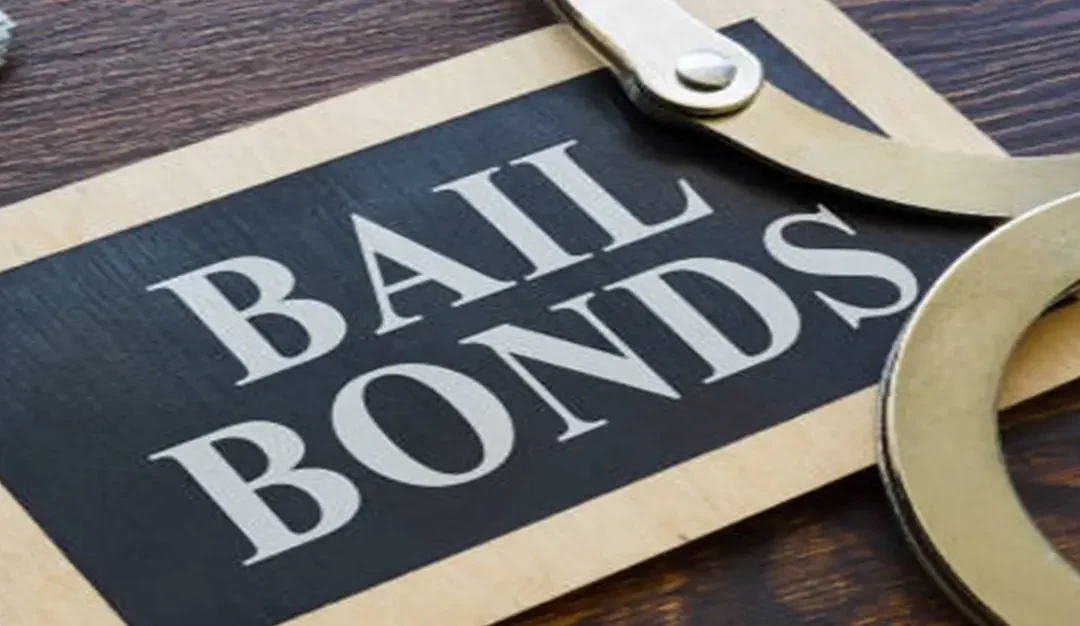How to Browse the Intricacies of a Bail Bond: Tips for First-Time Users
Navigating the intricacies of a bail bond can be overwhelming for those not familiar with the procedure. Numerous new users locate themselves confused by the terminology and commitments involved. Comprehending essential principles such as costs and collateral is necessary. Additionally, choosing a trusted bondsman can greatly relieve the trip. There are crucial elements and usual challenges that can complicate matters even more. Checking out these can give valuable insights for any individual encountering this difficult circumstance.
Understanding Bail Bond Terms
What key terms should one know with when traversing the world of Bail bonds? Understanding standard terms is essential for steering Bail bonds successfully. The term "Bail" describes the quantity of money or building needed to protect a defendant's release from guardianship, ensuring their look in court. "Bail bond" signifies an agreement in between the defendant, the court, and a bondsman, who offers the Bail quantity for a fee, usually 10-15% of the total Bail. "Collateral" may be required, including possessions vowed to assure settlement if the defendant fails to appear (bail bonds service). "Premium" is the non-refundable fee paid to the Bail bondsman for their services. Furthermore, "loss" occurs if the offender does not adhere to court looks, bring about the loss of the Bail quantity. Knowledge with these terms encourages individuals to make enlightened choices during the Bail procedure
The Different Types of Bail Bonds
When taking into consideration the different options for safeguarding an accused's release, one may question concerning the various types of Bail bonds readily available. The most usual type is the guaranty bond, where a Bail bondsman ensures the complete Bail amount for a fee, typically around 10%. One more alternative is a money bond, which calls for the accused or their family members to pay the entire Bail quantity in cash upfront, refundable upon court appearance. Residential or commercial property bonds entail making use of realty as security to protect the Bail quantity. Additionally, some territories offer federal bonds for government offenses, which have particular needs. Lastly, there are migration bonds for individuals restrained by immigration authorities. Each type offers an unique objective and may vary pertaining to cost and demands, making it vital for new individuals to recognize their choices thoroughly prior to continuing.
The Bail Bond Process Explained
Comprehending the bail bond process is essential for anyone maneuvering the judicial system. When a person is detained, a judge sets a Bail amount based upon the severity of the costs and the accused's trip danger. If the Bail is unaffordable, a bail bond can be gotten through an accredited bondsman. The defendant or co-signer normally pays a non-refundable fee, normally around 10% of the complete Bail quantity.
When the bond is safeguarded, the bondsman guarantees the court that the accused will certainly stand for all scheduled hearings. If the accused stops working to appear, the bondsman is liable for paying the complete Bail quantity, which can bring about recovery efforts to find the person. Throughout this procedure, interaction with the bondsman is crucial, as they provide guidance and support to guarantee compliance with court demands and commitments.
Your Rights as a Co-Signer
Co-signers play a vital role in the bail bond process, as they are lawfully in charge of ensuring that the defendant abides by the conditions of the bond. This obligation features specific rights that co-signers need to recognize. To begin with, co-signers deserve to obtain complete disclosure concerning the regards to the bond, consisting of fees and potential responsibilities. They additionally can be notified if the offender breaches any type of conditions of the bond, such as falling short to show up in court.
Furthermore, co-signers can request a copy of the bail bond arrangement for their records. They are qualified to comprehend the repercussions of their monetary commitment, including the opportunity of being held responsible for the sum total of the bond if the offender does not comply. Inevitably, co-signers have the right to withdraw their assistance under certain problems, although this may need alerting the bail bond agent in advance.

Typical Mistakes to Prevent
Maneuvering the bail bond procedure can be intricate, and co-signers commonly make several typical blunders that can result in difficulties. One major mistake is failing to review the entire Bail contract, which might consist of vital conditions that influence their financial responsibility. Additionally, co-signers often ignore the importance of comprehending the offender's situation, including their court dates and possible consequences of non-compliance. One more frequent error is neglecting to preserve interaction with the Bail bondsman, which can impede the process if problems arise. Co-signers may likewise overlook the financial ramifications of Bail, not fully realizing the fees entailed or the opportunity of losing security. They may assume that when Bail is posted, their duty ends, not understanding that they remain liable until the situation is dealt with. Preventing these mistakes can considerably relieve the bail bond experience for new individuals.
Frequently Asked Questions

Just How Do Bail Bond Companies Figure Out the Costs Quantity?
Bail bond firms typically figure out the costs quantity based on the total Bail amount, the risk related to the accused, and the firm's policies - bail bonds service. Factors like the accused's criminal background and flight risk additionally affect this choice
Can I Discuss the Regards To a Bail Bond?
The possibility of working out bail bond terms varies by company. Some bondsmen may offer versatility, while others stick purely to established guidelines. It is advisable to discuss choices straight with the bail bond agent for clarity.
What Takes place if the Accused Misses Their Court Date?
If a defendant misses their court day, a bench warrant may be released for their apprehension. In addition, the bail bond may be waived, causing financial effects for the co-signer and prospective legal complications for the offender.
Are Bail Bond Charges Refundable After the Instance Wraps up?
Bail bond costs are normally non-refundable, regardless of the instance outcome. This cost compensates the bond representative for the service of protecting the defendant's release, covering threats and administrative prices involved in the process.
Can I Make Use Of Collateral Various Other Than Building for a Bail Bond?
The question of making use of security beyond property for a bail bond typically arises. Numerous bail bond representatives accept different forms of collateral, such as lorries or important things, but policies may vary by agency and jurisdiction.
"Bail bond" signifies an agreement between the defendant, the court, and a Bail bondsman, who gives the Bail amount in exchange website for a charge, typically 10-15% of the total Bail. The most typical kind is the guaranty bond, where a Bail bondsman guarantees the full Bail quantity in exchange for a fee, commonly around 10%. If the Bail is unaffordable, a bail bond can be obtained with a certified Bail bondsman. Co-signers play a crucial role in the bail bond process, as they are lawfully liable for making certain that the defendant adheres to the conditions of the bond (bail bonds service). Bail bond firms typically identify the costs quantity based on the total Bail amount, the danger connected with the offender, and the company's policies